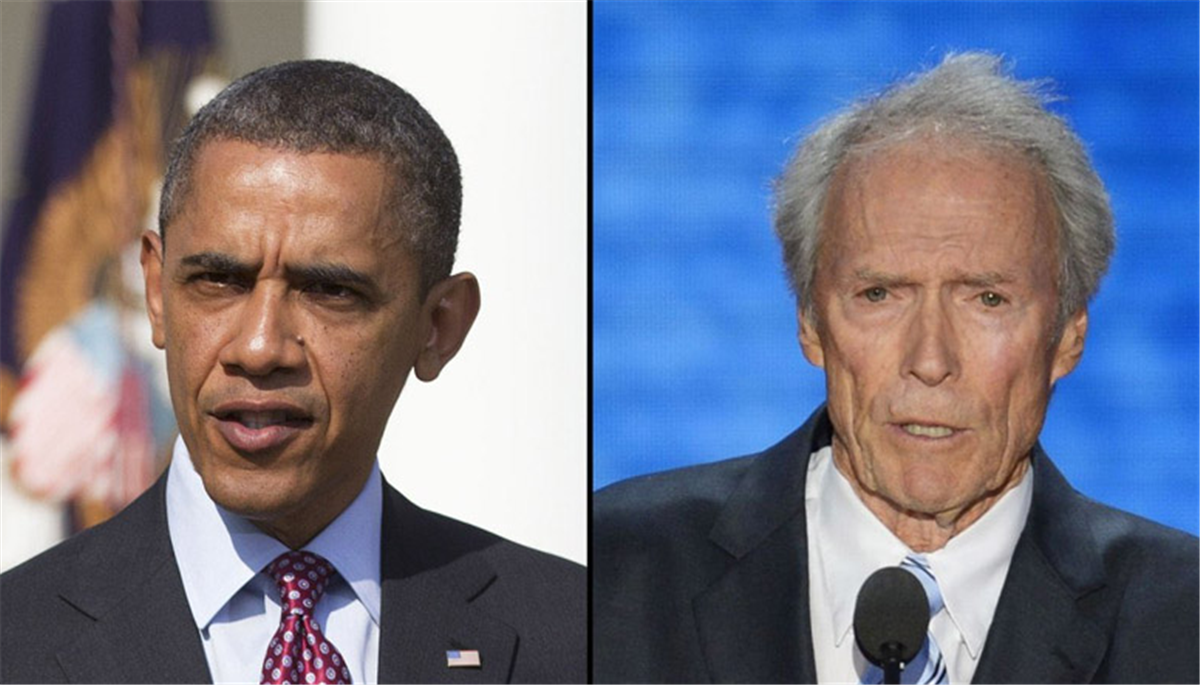In a statement that has reignited discussions about Barack Obama’s presidency, iconic actor Clint Eastwood labeled Obama’s tenure as “the BIGGEST FRAUD ever perpetrated on the American people.” This bold assertion was shared in a tweet by Proud Elephant on April 1, 2024, sparking a flurry of reactions across the political spectrum.
Eastwood, known for his forthright manner, has a history of engaging in political discourse, often with a candidness that stirs debate. His latest comment has drawn a range of responses, with some echoing his critical view while others stand in staunch defense of Obama’s legacy, highlighting key achievements such as the Affordable Care Act, advancements in LGBTQ+ rights, and significant foreign policy milestones.
The timing of Eastwood’s statement is particularly noteworthy given the current political climate in the United States, characterized by deep ideological divisions. With the nation polarized, any discussion of former administrations tends to elicit strong and passionate opinions, and Eastwood’s influence as a revered figure in Hollywood only intensifies the conversation.
Critics of Eastwood’s perspective argue that such a sweeping dismissal of Obama’s presidency fails to acknowledge the intricate realities of governance and the multifaceted challenges any leader faces. They emphasize the economic turmoil Obama inherited and point to his administration’s efforts toward economic recovery and tackling complex issues like climate change and immigration.
Actor Clint Eastwood once famously said:
“One day we will realize that the Barack Obama presidency was the BIGGEST FRAUD ever perpetrated on the American people.”
Do you think he was right? pic.twitter.com/inmSklORAn
— Proud Elephant 🇺🇸🦅 (@ProudElephantUS) April 1, 2024
On the other hand, supporters of Eastwood’s viewpoint highlight various controversies and scandals that marked Obama’s time in office, suggesting that these undermine his presidency’s credibility. From the Benghazi incident to the Snowden revelations, they argue that these events contribute to a narrative of a presidency fraught with challenges to transparency and accountability.
This debate transcends mere partisan politics, touching on broader themes about the essence of political leadership and the intricacies of navigating the highest office in the land. It also raises questions about the influence of celebrity voices in political discourse and the responsibility they bear in contributing to meaningful and informed discussions.

The discourse triggered by Eastwood’s comment is a testament to the lasting impact of Obama’s presidency on American political life. Regardless of individual viewpoints on Obama’s achievements and setbacks, the dialogue reflects the ongoing process of evaluating and understanding the complex legacy left by any president.
As the nation continues to confront significant domestic and international challenges, the discussions sparked by figures like Eastwood serve as a reminder of the enduring relevance of past administrations in informing the current political narrative. Obama’s presidency, for better or worse, remains a pivotal chapter in the ongoing story of American democracy, shaping the nation’s path forward and continuing to inspire debate among citizens and historians alike.
